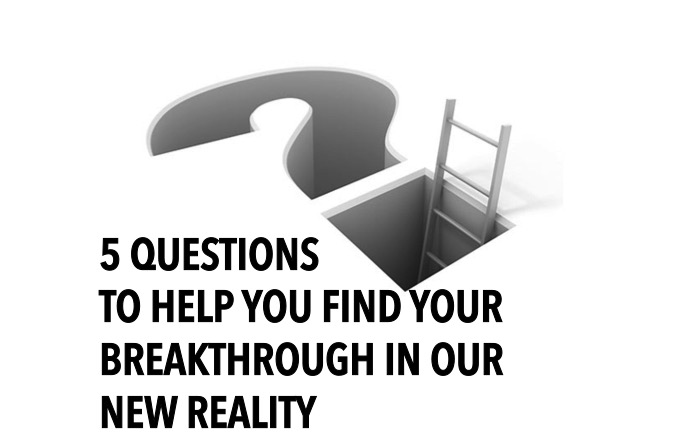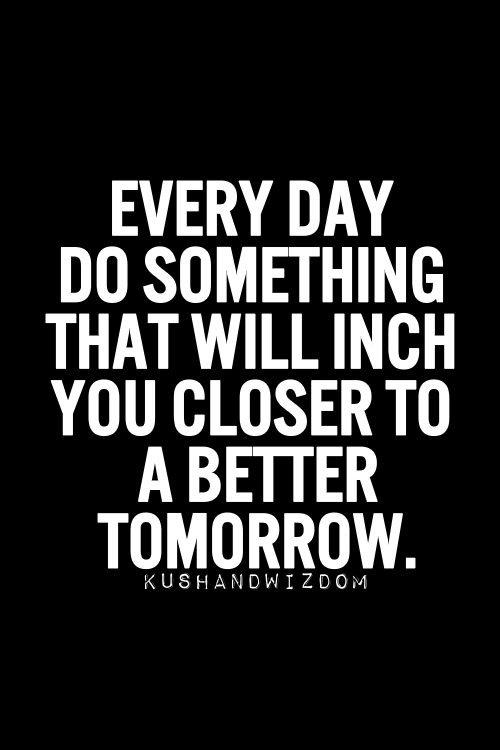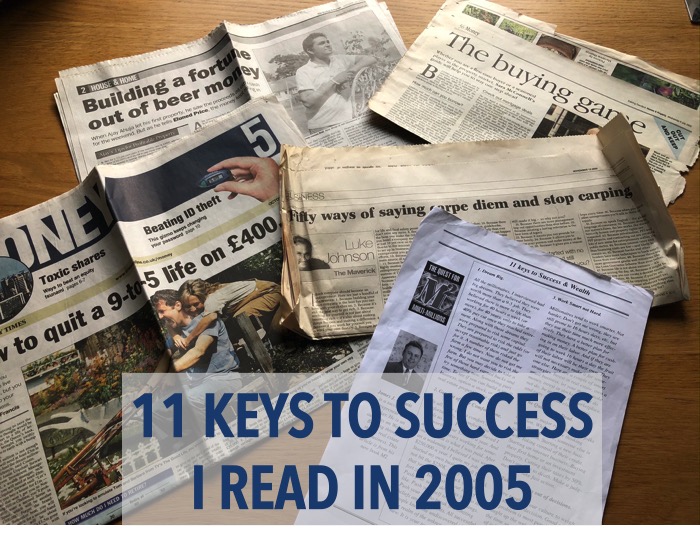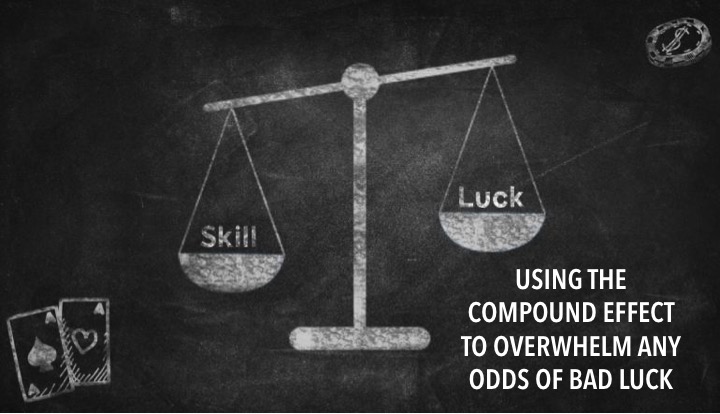It’s fair to say that the world as we knew it at the start of 2020 has gone. however there’s another side to the coin – there’s a load of new problems that have come about that are just waiting for entrepreneurs to show up and solve.
In my February post on “Training Your Property Entrepreneur Brain’ [link at the bottom if you missed it] I shared the basic backbone of a business – that being a CUSTOMER using a MECHANISM of some kind to get a desired end RESULT. In other words start with finding what end result that customer needs. Right now there are many pain induced needs emerging everywhere opening up incredible opportunities for innovative property people and entrepreneurial thinkers.
I sat in on a brilliant one off live presentation that Darren Hardy broadcast this week which focused on a specific set of questions business leaders need to ask themselves (and find answers to) to prepare their comeback. He shared a great Peter Drucker quote which went something like this,
“Great ideas are birthed through the labour of asking great questions, and finding the answers.”
Discovering answers to questions like the ones I’ll share are what will help you adapt, possibly pivot but either way fuel the next level for your business.
On April 5th we heard our Monarch addressed the nation in response to the health crisis – a line she used that will I am sure be referenced long into the future was,
“I hope in the years to come everyone will be able to take pride in how they responded to this challenge.”
I’m confident that those reading this will want to feel pride as it relates to all aspects of their response, particularly from a business and legacy perspective. So to that end, I encourage you to invest some time brainstorming answers to the questions I’ve picked out to share.
I’ve selected FIVE questions, from the many Darren walked through, that I felt would be most relevant for those with property businesses. On one hand, these questions are designed to guide us through creative thinking and strategic analysis to help minimise potential risks; and on the other hand, they will help discover the incredible opportunities that are emerging in our new reality.
QUESTION #1
WHAT CAN WE DECONSTRUCT AND REINVENT?
To arrive at your answer, start by thinking along the lines of what result(s) your property business is already good at delivering. Ask yourself, even in a pandemic, what hasn’t changed? ie the population still need housing/accommodation, but your audience may have shifted. Then ask yourself – What would our business look like if we started from scratch right now?
To help fuel your thinking with some inspired reference points I’m including a case study for each question that Darren used to illustrate the point.
Case study:
He referenced a company called Versare Solutions, a maker of office cubicles and room dividers – they have recently switched to making plexiglass screens for checkout lanes and reception areas after a request from a California pharmacy gave them the idea.
Another great pivot I heard was about an interior designer whose business dried up with no live property projects to work on. She pivoted into the niche of helping people at home spruce up their backdrop for their, now daily, zoom calls. Genius eh!
Even if it’s only to tide things over, where can you take your core areas of expertise in adding value and now meet a new high demand market? Is it the NHS in some way? Is it playing cupid between landlords and new tenant buyers?
QUESTION #2
CAN WE REDEPLOY OUR KEY SKILL SETS?
The skills that you/your company excels at may be a source of growth or new business if applied to a different set of problems.
What are those key skills and where might they be redeployed for essential services or current high-demand markets?
Have a go at listing out what you see as essential services and high demand markets and see where your skills may link in.
Case study:
A Californian computer repair company called iFixit, redeployed its team of IT infrastructure
experts to help hospitals maintain and repair critical equipment like ventilators.
QUESTION #3
WHAT ELSE DO OUR CLIENTS NEED THAT WE CAN HELP THEM WITH?
Darren reminds us that we are not in the “product or service-selling business. We are in the problem-solving business for our target client.”
Ask yourself, what else does my target client want or need that I might not currently offer, but could?
Case study:
A travel blogger polled her reader base to ask what they might be interested in and where she could help – they responded with asking for tips on fashion, beauty, diet and nutrition. She listened and started sharing her tips on those areas and her blog traffic, and ad revenue, has grown as a result.
QUESTION #4
CAN WE PRE-SELL OR BULK SELL OUR PRODUCT/SERVICE?
This one might be particularly relevant to those in the serviced accommodation space, especially if an injection of cash flow is needed to sustain things.
Ask yourself – can we pre-sell or bulk sell our accommodation? What kind of incentive can we offer to pre-sell/bulk sell our accommodation to advance cash collection?
Case study:
A paint company had just come off its best quarter in history. Owners invested in scaling up staff, trucks and equipment to meet new demand. Then COVID-19 hit and the company went from high revenue growth to zero, yet expenses remained the same. To bridge the cash flow gap, the company created a promotional campaign offering a 25% discount on future projects with 50% prepayment. The customer wins and the paint company received the cash infusion it needs to sustain business through the isolation period.
QUESTION #5
HOW CAN WE MAKE IT EASIER TO DO BUSINESS WITH US IN THIS NEW REALITY?
Due to this isolation lockdown, the use of technology has taken a major leap forward – you know it yourself, you probably have parents and grandparents on family zoom calls now but likely didn’t a couple of months ago. 🙂
Because we have been forced to adopt digital solutions and virtual interactions it’s opened up an incredible number of ways to reach and engage with new customers.
Darren posed the question another way which may help your thinking,
“Using digital solutions and virtual interactions, how can we adjust our business model or work practices to radically reduce costs or rapidly scale our market penetration?”
We already know that property agents are doing virtual house tours, what else could be done along these lines?
I hope these questions get you thinking creatively and help to unearth solutions not just for survival, but for growth.
Link here to the post I referenced on training your property entrepreneur brain




